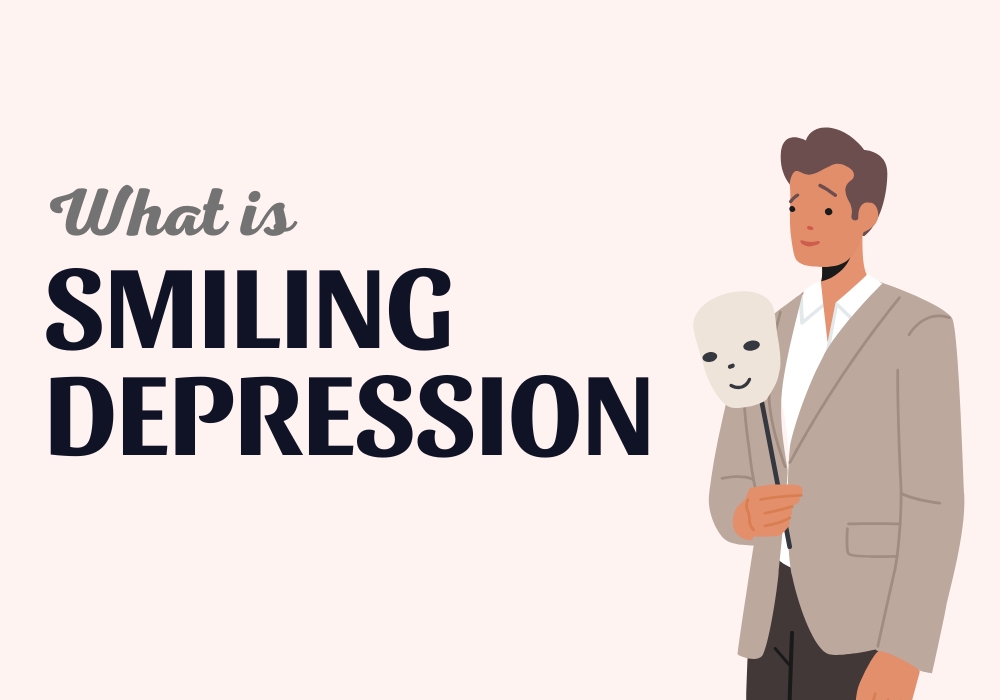What is Over Analyzing?
Over analyzing refers to excessively focusing on a situation, problem, or idea, examining or dissecting something, scrutinizing minor details, searching for hidden meanings, or reading too much into a situation. It involves examining every detail, considering different scenarios, and repeatedly analyzing past actions or future possibilities. This habit can result in constant rumination, hindering decision-making, causing emotional distress, and potentially affecting overall well-being. Overthinking can prevent individuals from finding solutions, enjoying the present, or making clear decisions due to the overwhelming nature of excessive thought. It is important to strike a balance between thoughtful consideration and avoiding getting trapped in a cycle of overthinking.
Individuals who engage in this behavior often overthink and overcomplicate things, leading to unnecessary stress and anxiety. This can be particularly true regarding personal relationships or decision-making processes.
What is the difference between Overthinking And Overanalyzing?
The difference between overanalyzing and overthinking depends on their focus and extent. Over-analyzing involves closely examining specific details or situations to understand nuances, it’s like zooming in on a single idea. On the other hand, overthinking encompasses a broader scope, where thoughts continually loop, exploring various scenarios and potential outcomes, similar to rearranging multiple ideas without progress.
Overanalyzing and overthinking both result in repeatedly going through different scenarios, leading to mental rumination. Although both tendencies can cause analysis paralysis and increased stress, over analyzing is associated with specific instances while overthinking involves generalized worry. Finding a balance between thoughtfulness and letting go is essential for maintaining mental clarity and making informed decisions.
12 Signs You’re Over-Analyzing:
If you think you analyze everything too much, here are the 12 most common signs of over-analyzing everything:
1-You should never accept anything without questioning it:
When someone speaks, trust that their intentions are genuine and there is no hidden agenda. The nature of an overanalyzer leads them to never accept information at face value. They always dive deeper and contemplate more in order to consider every aspect of a problem and leave no stone unturned in peculiar situations.
However, sometimes it’s important to realize that when someone says something, there may be no hidden motive or additional information. In these cases, it may be best to accept the statement as is.
2-You Take Things Personally:
No one enjoys being insulted, but it’s important to remember that not every comment is meant to be directed toward you. If you find yourself feeling offended, take a moment to find inner peace and then seek the opinion of someone who may have been present. If there was no actual insult intended, then, when you feel more relaxed, politely ask the person for clarification.
3-You spend more time thinking than doing:
One of the biggest signs of over-analyzing is spending too much time lost in one’s thoughts instead of taking action. People who struggle with overthinking tend to experience this. Constant self-reflection leads to a disconnection from the present moment as individuals become overwhelmed by past events, future possibilities, and expectations.
In reality, you spend most of your free time overthinking various aspects of your life, such as past relationships, friendships, and social situations, your last conversation… Instead of actively engaging with the real world, you find yourself trapped in your own thoughts without even realizing it.
4-You constantly think of worst-case scenarios:
Over analyzing often occurs when your thoughts consistently focus on the worst-case scenarios. It’s like your mind is determined to unravel every potential negative outcome, leaving little room for positive perspectives. This tendency can create unnecessary anxiety and prevent you from fully embracing the present moment. When you constantly dwell on the worst-case scenarios, they overshadow the possibilities of positive outcomes and innovative solutions.
Life is unpredictable and uncertain – embracing this fact will lead to greater happiness sooner.
5-You suppose You Know What People Are Thinking:
You should never assume you know what someone is thinking because you’re not a mind reader. Assuming leads to misunderstandings and tension, and claiming to know what someone is thinking only starts arguments.
6-You perceive every ‘No’ as a personal rejection:
Sometimes, people might decline a plan or refuse a favor for various reasons. It doesn’t necessarily mean they’re rejecting you personally. If you tend to take such rejections personally, it could be because you tend to overthink things. Instead of dwelling on it, it’s better to understand that everyone has their own reasons for saying no. So, don’t waste your time overthinking it, and move on confidently.
Related:Why Is Saying ‘No’ So Important?
7-You have a tendency to be overly critical of yourself and others:
People who constantly overanalyzing things often focus on the negatives rather than the positives. This attitude not only affects the individual’s perception of themselves but also their perception of the world.
”It has been observed that people with a cynical mindset can be difficult to work with, and others tend to avoid forming friendships with them.”
8-You Perfectionism:
The pursuit of perfection can often lead to overanalyzing and being paralyzed by overthinking. This happens when every detail is examined and an ideal outcome is aimed for. Despite the goal of achieving flawlessness, this continuous scrutiny can be counterproductive.
When overanalyzing through the lens of perfectionism, progress can be hindered as the focus becomes fixated on finding potential flaws rather than embracing imperfections as part of the journey. However, by releasing the need for absolute perfection and allowing for flexibility, we can break free from the constrictive cycle of over-analyzing.
Related:10 Ways to Overcome Perfectionism
9-You Read Too Much Into Text Messages:
Another sign of over analyzing is when you create a story based on a single text message, you may be overthinking and assuming too much. This can lead to frustration when reacting to the fabricated story.
10-It Keeps You Up at Night:
If you find yourself unable to stop thinking about something after lying down in bed, it could be a sign that you’re thinking too much. This can have a negative impact on your sleep and overall well-being. It may lead to irritability and decreased performance.
Related:How to stop Insomnia ?
11-You Easily Get Offended:
If you find yourself being easily offended by the smallest of comments or actions. This behavior can lead to drama in your life and negatively affect those around you.
12-You Are Haunted By The Fear Of The Unknown:
Living with uncertainty can take a toll on a person’s mental well-being. This fear can occupy one’s thoughts and leave one feeling perpetually on guard, even during moments of relaxation.
How to Stop Over Analyzing Things:
1-Pay attention to your signs:
The first step in avoiding overanalyzing is recognizing the signs in your mind and body. Ask yourself if you’re overthinking and focus on how you feel physically. Overanalyzing can feel heavy and tense, and it’s important to pay attention to your emotions without judgment.
2-Stop bringing up the past:
It’s normal to wonder what could have been, but it’s not healthy to spend all your time thinking about it.
Everyone makes mistakes, and it is natural to wonder about the different outcomes if we had made different choices. However, it is not productive to constantly dwell on the past. Instead, we should focus on the present and the future, and work towards our goals with confidence. Ruminating on the past only hinders our progress and prevents us from reaching our dreams. So, let go of the past and embrace the opportunities that lie ahead.
Related:Letting Go of the Past: 24 Ways to Move On
3-Distract Yourself:
If you are troubled by an abundance of thoughts, attempt to divert your attention. Instead of reflecting or scrutinizing the subject repeatedly, engage in other activities. Try something novel or something that tests your intellect. Simply distract yourself. This will assist you in keeping your mind off of things and remaining focused on what you can control.
4-Stop Looking For More:
Frequently, we tend to overanalyze everything due to our search for additional clues or hidden meanings. It is important to recognize that some things simply happen without a deeper significance. It is necessary to observe, acknowledge and accept it, then move forward.
5-Journal(Write things down):
Transcribing your thoughts on paper can aid in processing them and releasing the sources of overthinking. When ideas are racing through your mind at a rapid pace, comprehending them or convincing yourself that they’re false can be challenging. Attempt to express your thoughts on the written page to declutter your mind and ponder. The act of transcribing your thoughts could also assist you in determining whether or not they’re logical and deserving of your attention.
This is a wonderful method for letting go of your thoughts and feelings that are causing you stress and anxiety.
Related:10 Tips to start Journaling and make it a Habit
6-Stop trying to be perfect:
Attempting to achieve perfection often leads to overthinking. However, perfection is an unattainable goal. By accepting imperfection, one can release the need to overthink.
Perfectionism is a dead end. To improve, you need to make mistakes and learn from them. So stop chasing an unattainable ideal and start embracing your imperfections.
7-Avoid Assumptions:
To stop the tendency to over analyze everything, it is necessary to avoid making assumptions. Sometimes, when one assumes things, they automatically begin to read between the lines and the hidden meaning. Rather than making assumptions, one should ask for clarification. This will prevent the cycle of over-analysis from beginning.
8-Avoid Catastrophizing:
Make sure to consider alternative perspectives that are more balanced and less catastrophic. Examine your catastrophic predictions to determine whether they are grounded in evidence or simply the result of excessive worrying. Think rationally and realistically when reframing negative thoughts. A more optimistic outlook can reduce anxiety and allow for a more balanced analysis of situations.
9-Be More Mindful:
When you think too much and analyze too deeply, it makes you lose touch with reality when you start thinking about things that haven’t happened yet and may not even happen.
To put an end to over analyzing, it is essential to cultivate mindfulness and stay present. Rather than worrying about what may or may not occur in the future, concentrate on the current moment.
10-Create Closure:
Over analyzing everything can happen when closure has not been found. To stop this behavior, finding closure is essential. If closure is not found, it may need to be created.
The attainment of closure is crucial in overcoming over analyzing and rumination. It is necessary to identify and tie up all loose ends to achieve this.
11-Always Have a Goal:
Before starting any work or task, it is crucial to ask oneself about the end goal and what is intended to be achieved. It is then important to differentiate between essential and non-essential tasks. One should never work on hypothetical tasks without having a clear goal in mind. To ensure success, it is very important to establish clear and achievable goals.
12-Work on Deadlines:
One way to decrease over analyzing is by giving yourself self-imposed deadlines. If you set a firm point where you must finish, and nothing and no one can stop you, you will find yourself pressed for time. When you have a set deadline that cannot be changed, you will be motivated to focus on the essential aspects of your project or decision without overthinking.
Conclusion
It’s totally normal to overthink sometimes, but recognizing when it happens is the first step towards finding peace within yourself. Be kind to yourself and find ways to break free from those doubtful thoughts. You deserve peace and clarity! Mindfulness and embracing imperfection can help quiet the noise in your head so you can enjoy the present moment. Trust yourself, take care of your mind, and know that you have the power to overcome overthinking and find serenity.











7 Comments
Your comment is awaiting moderation.
[…] magnifying mistakes. Overanalyzing makes them seem bigger than they […]
[…] © Viemina […]
I’d love to read an article about “Over Thinking”, since according to this article, they are not the same. Thanks
Thanks for your comment!
Yes, there is an article about overthinking. Here’s the link: https://viemina.com/how-to-stop-overthinking/
Your comment is awaiting moderation.
[…] kinds of questions aren’t about overanalyzing everything. They’re just a way to bring more awareness to your patterns. The more you notice, the […]
Thanks for finally writing about > 12 Signs you're Over analyzing and How to Stop
it? useful link
Thanks for finally writing about > 12 Signs you're Over analyzing and
How to Stop it? Teen Cams
Your mode of explaining everything in this piece
of writing is really nice, every one be capable of simply be aware of it, Thanks a lot.
Welcome & Thank you so much ❤️